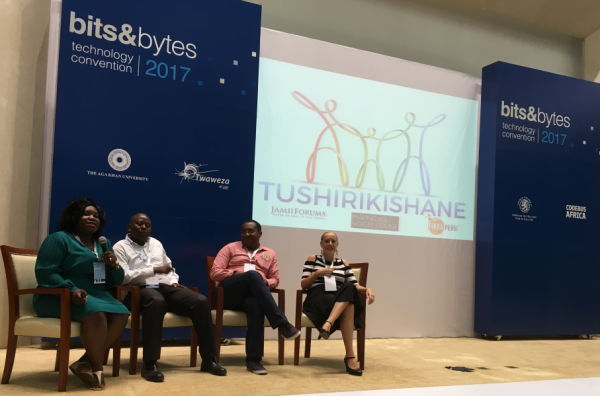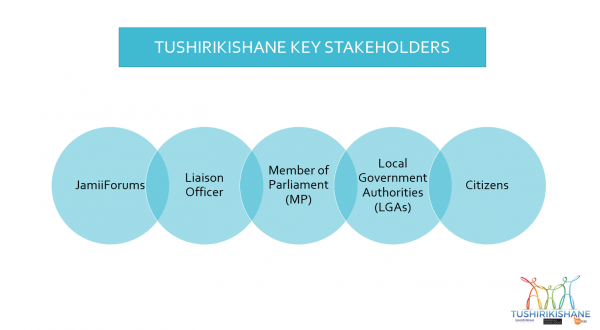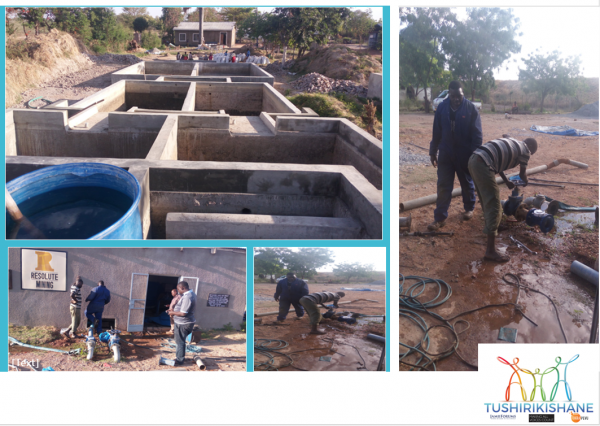Last week, Making All Voices County participated in the annual seminar on innovation, entrepreneurship and technology, Bits & Bytes, in Dar es Salaam, Tanzania.
From 28-30 March 2017, innovators, thought leaders, entrepreneurs and executives from around the world discussed best practices and theories on the implementation of innovation-driven development strategies and the importance of innovative talent.
The seminar aimed to develop, connect, and inspire a community that builds better societies through technology and innovation.
Jamii Media, took the floor to present how they are using ICT to link elected leaders with their citizens, when implementing the Making All Voices Count-funded project Tushirikishane.

Tushirikishane was born out of the need to promote online content of what citizens ought to know and share, in relation to their social development based issues - concerning them and represented by their elected leaders.
This instills being actively involved in their own governance, not just passively but based on informed, critical reflection, and on understanding their roles and roles of their leaders.

Combining online and offline strategies to connect a Parliamentarian with citizens
Jamii Media’s presentation deliberately steered away from the tech angle and presented a case study that made a link between the technology platform and the online discussions that go on there, and the offline nature of some of the outreach work that is involved in the Tushirikishane project.
The team shared their experience with Nzega Constituency and the promise for a short-term plan to solve the challenge of unavailability of safe and clean water, by constructing new water reservoirs tanks. The following steps were taken:
- Jamii Media provided a meeting ground for all.
- The citizens complained and explained ‘WATER’ was their number one priority.
- The Members of Parliament promised funds will urgently be allocated to solve the water problem.
- A Liaison Officer (Jamii Media Representative) was introduced. He was the link of information flow and an initiator of discussion online.
- An activity plan was produced and provided as guideline to monitoring implementation.
- Jamii Forums was provided as a platform for engagement for all the key players, making sure that all progress, feedback and updates were shared.

The citizens of Nzega were lacking access to clean and safe water for almost a decade. During the citizen-government engagement, it came to light that funds from the government, private sector and investors that were allocated in order to sort out the water problem, were never utilized as intended.
Within 10 months of Jamii Media’s intervention, the problem of water availability had been solved and the citizens together with the local government authorities are increasingly monitoring local development projects.